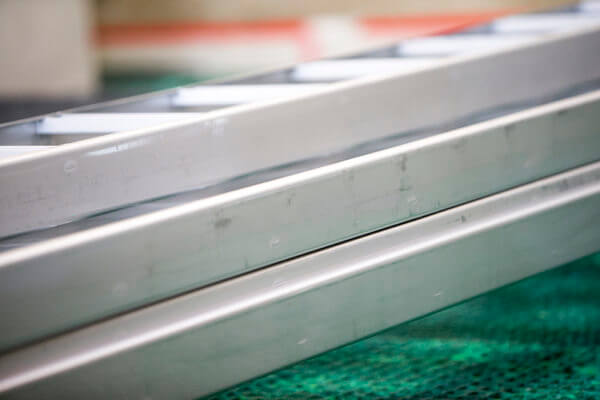
The pre-commissioning stage shouldn’t be the only time your stainless steel system or installation sees a good cleaning, pickling, and/or passivation, although it may be the most important time. Doing this periodically after it’s been put to work and removing process contaminants, will help to maintain the life and integrity of the stainless steel. It can be a daunting process, especially with a large stainless steel cleaning project. Let International Corrosion Services, or ICS, do that work for you.
What is Pickling?
In the context of stainless steel – the chemical treatment used to remove the damaged layers of stainless steel or contaminants such as the heat effected zone and iron restoring the chromium oxide layer which gives stainless it self healing and protection properties.
Chromium depletion occurs where the steel was heated – through welding, for example, which affects the steel surface’s ability to form a chromium oxide layer, making the steel less resistant to corrosion. In order to restore corrosion resistance, this damaged layer needs to be removed. Removing it mechanically may result in abrasive particles embedding in the steel, which would be counterproductive, as this will interfere with the corrosion resistance itself.
The pickling solution usually consist of a hydrofluoric acid mixture, although there are other mixtures for specialised purposes. After pickling, the metal looks duller.
What is Passivation?
Passivation occurs when a protective, “passive” film – chromium oxide – forms on the surface of steel that will protect against corrosion. It happens naturally, however sometimes you want it to form rapidly. Nitric acid solutions or Avesta Finsh One 630 are applied to help this along.
Passivation doesn’t dull the surface of the steel like pickling, but it is important to apply Avesta FinishOne 630 after pickling to remove free iron contamination, so often you will pickle and then passivate.
Neither pickling nor passivation removes grease or oil, so the fabrication should be cleaned with detergent or an alkaline clean beforehand.
For more detailed information about pickling and passivation, check out the Australia Stainless Steel Development Association (ASSDA) article. ASSDA also recommends reading the ASTM A380 Standard Practice for Cleaning, Descaling and Passivation of Stainless Steel Parts, Equipment and Systems and offers a number of publications for sale.
Why Not Let ICS Do The Dirty Work For You?
Both processes utilise acids that are dangerous to operators and the environment, so they must be handled properly, pursuant to safety precautions outlined in Materials Safety Data Sheets. After pickling and passivation, you must also neutralise the acids by using an alkali and then thoroughly rinse the components. That’s a lot of hassle. Also in Western Australia, the State Government requires any user of Hydroflouric Pickling paste to hold a Poisons Permit.
ICS uses the most effective acid mixtures for its processes and owns the best – and largest – state-of-the-art stainless steel pickling and passivation bath in the country.
Read more about the amazing ICS pickling bath.
Remarkably, ICS also offers an onsite cleaning, pickling, and passivation service if it is unfeasible or impossible to move components off the premises. This service includes:
- Identifying the type of treatment required and develop a scope of works;
- Developing site-specific treatment operating procedures in compliance with the standards;
- Developing and implementing health and safety procedures (risk assessments included);
- Bundling and waste capture process for collection and offsite disposal;
- Quality control (sometimes using the Forroxyl test as a means of ensuring the stainless steel is free from iron contamination; and
- Issuing a certificate of completion and conformity.
Read more about ICS onsite services.
What this means is that you can forego the headaches because you can rest assured that your stainless steel equipment is getting the very best cleaning and treatment, and will last longer as a result. Let the experts come to you. Contact us for more information.
 ICS will be closed for the Christmas and New Year period from 12pm, 22 Dec - 9 Jan 2023
ICS will be closed for the Christmas and New Year period from 12pm, 22 Dec - 9 Jan 2023
